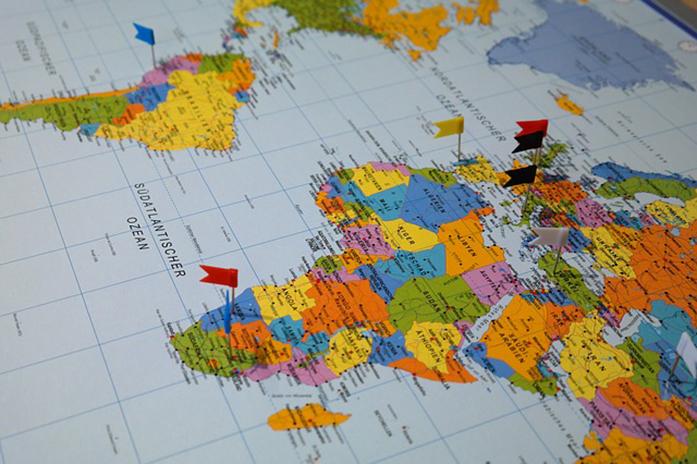Anis Shakirah Mohd Muslimin
[email protected]
“You were Charlie, you were Paris. Will you be Ankara?” said Facebook user James Taylor on the social-media website in response to the recent terrorist attacks in Turkey.
While the world mourns the tragedy that killed at least 30 and injured 230 others in Brussels, I believe it is also important to honor the victims of the recent terrorist attacks in Turkey and other parts of the world.
This is not the first time that mainstream media have failed to provide extensive coverage of terrorist attacks around the world. Although both the Belgium and Turkey attacks happened in the span of a week, many major media outlets in the world have failed to draw attention to the latter. And this got me wondering.
Why?
If you didn’t know yet by now, prior to the Brussels attack, there were two outbreaks in Turkey. One on March 13 in which a car bomb in Ankara killed 36 people and left more than 100 injured nearby. And just days ago, four people were killed by an ISIS-affiliated suicide bomber in a busy area in Istanbul.
So far, I have only heard most students reference the Paris and Brussels terrorist attacks despite there being several more attacks around the world that have both injured and killed even more civilians than those two countries.
Unlike Paris, Turkey’s national flag didn’t get the privilege of being made into a photo filter on Facebook for users to show their support and solidarity in times of terror.
People argue that the Paris attacks were bigger, deadlier, more sophisticated, and because it happened in a location that was more immediately accessible for English-language journalists. But don’t all those attacks essentially bear the same meaning — death of innocent people?
The disparities in reporting terror attacks in lesser known countries by mainstream media are evident, qualitatively and quantitatively. The obvious cultural bias can be seen through substantive playing down of crises in distant lands and in the failure to report news with the same empathy and humanity they adopt when crises strike areas closer to “home.”
Unfortunately, there is also the expectation that there will be attacks in countries such as Syria, Pakistan, and Lebanon. But France and Belgium? No. That’s new and seems a little too close to home.
The issue matters because the media structure how people react to world events. News that gets more coverage tends to indirectly shape public interest.
The inadequate coverage also, to some degree, plays down attacks in other regions of the world, subtly sending out a statement that those attacks don’t matter.
RELATED: Conflating Muslims with terrorism
The media also affect how people ultimately empathize with cities and with victims. For instance, when a Shia neighborhood in Beirut was bombed, it was referred to as a “Hezbollah stronghold” despite its being a civilian area. It almost seems like a justification. In contrast, we’d never reference Brussels as a “NATO stronghold,” because that would take the focus off people who were senselessly killed.
I also feel the lack of coverage of terror attacks in lesser known countries clouds the judgment of many individuals who receive their daily information from the media. As a Muslim, uninformed people would not know that terror attacks also happens in predominantly Muslim countries.
There is a misconception that because ISIS perceives its own self as so-called “holy warriors of Islam,” innocent and peaceful Muslims such as me are safe and secured from their threats. This perception is a huge fallacy that is not only inaccurate but also blatantly ignorant, because from the 1.6 billion Muslims around the world, many of them are also daily victims of ISIS.
The lack of media attention toward predominantly Muslim countries hit by ISIS fuels the perception that Muslims aren’t targets of these monsters. These combined reasons are why Islamophobia has been steadily on the rise.
“We need to empower law enforcement to patrol and secure Muslim neighborhoods before they become radicalized,” said U.S. presidential candidate and Texas Sen. Ted Cruz in a statement Tuesday, as news of the Brussels attack came out.
Algeria, Saudi Arabia, Egypt, Tunisia, Yemen, Afghanistan, Turkey, Kuwait, Lebanon, Bangladesh, and most recently Indonesia are all predominantly Muslim countries that have been attacked by terrorists, but information on those attacks have been vaguely publicized.
Why? Was it because it wasn’t deadlier? It wasn’t sophisticated enough? People don’t speak English? Wherever in the world, it is always a sad sight to see parents cling on to their dead children stained with blood because of a terror attack.
Terror victims from smaller and lesser-known countries deserve our sympathy, too, but more crucially, they, too, want our support and prayers.
I felt what many did when terrorist struck both Paris and Brussels. Like many others, I felt pain and anger because those who were killed were civilians just like me — ordinary people.
But my heart also felt deeply for many other less-publicized terror-hit countries, because those same innocent civilians were also depending on people like myself, the media, to spread news of their pain out to the world, but we didn’t.



